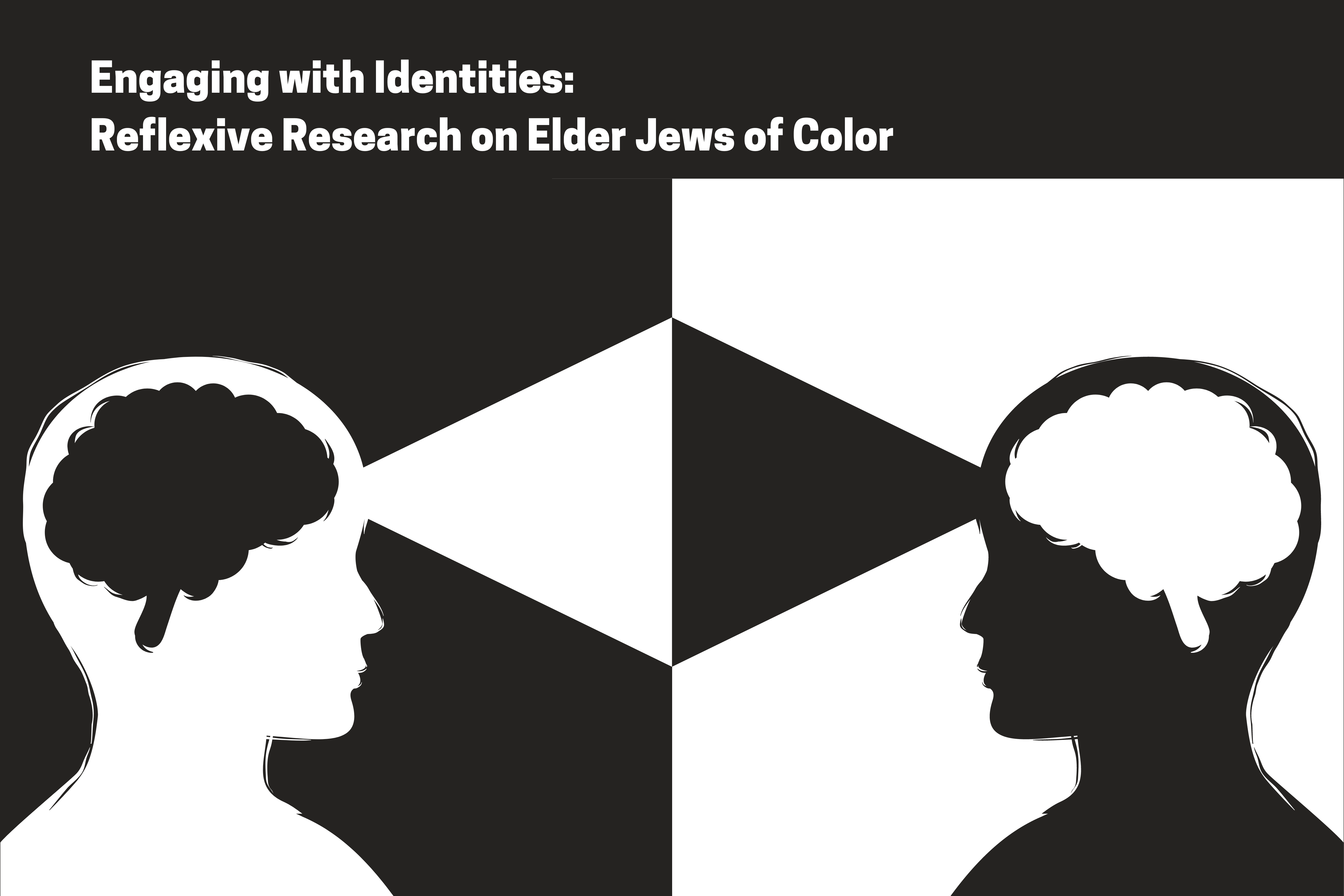
As part of efforts to advance the field of knowledge about Jews of Color, this fiscal year the Jews of Color Initiative ran a request for proposals calling for original research projects conducted by and/or focused on Jews of Color. One project, led by four researchers at the Center for Applied Research and Evaluation (CARE), explores the life experiences of Jews of Color above the age of 50, providing insights into an understudied demographic among Jews of Color. The CARE team is interviewing over age 50 JoC from diverse backgrounds to understand the intersection between Jewish faith and other identities during periods of political and social unrest.
Researchers Eugenia Weiss, Sara Schwartz, Malikah Marrus, and Jesse Strassman, all of whom identify as women, have backgrounds in social work and academia, which equips them with the trauma-informed skills and research capabilities to conduct this study. Schwartz, an Associate Professor at USC School of Social Work, describes the importance of trauma-informed training because the topics interviewees discuss tend to “open something up in them that was locked away for so long.” When Schwartz’s synagogue hosted a presentation on Beyond the Count, she recognized the sample of participants unintentionally skewed toward younger Jews of Color. That sparked her curiosity, as it converged with her own prior research on intergenerational trauma among female Holocaust survivors. The presentation of Beyond the Count, as well as the response it garnered from her majority white synagogue, prompted Schwartz to convene the CARE Research team to contribute their original research to advance communal knowledge. Marrus, whose Master’s thesis focused on intergenerational relationships between grandparents and grandchildren, also found a strong alignment with her research interests in the elder population of JoC whose experiences are largely untold. Mobilizing around the JoCI’s Request for Proposals for “Amplifying Jewish Scholars of Color and Jews of Color-Focused Research,” the synergy that occurred when the researchers first gathered to discuss the project felt natural and immediate.
Surfacing under-represented perspectives is a core value of the CARE research project, and is guided by the multitude of experiences represented among the team. “The fact that we are all social workers and all of us have a commitment to social and economic justice, and human rights guides our research,” said Marrus, “not only are we empathetic, but we have this social justice aspect of who we are that also plays into wanting people to be seen and heard.”
The researchers each occupy different identities and relationships to Jewishness, offering them a view from multiple standpoints. Weiss identifies as a Latinx Jew of Color with roots in Chile, Schwartz identifies as an Ashkenazi Jew, Marrus identifies as a Black Jew of Color from a mixed-faith family, and Strassman identifies as a white, non-Jewish woman with a Jewish husband. “We’re all academics and social workers,” said Marrus, “but we each have these amazing intersectionalities that when you put them together, it’s pretty powerful. And here we are trying to empower other people to have their voice heard, and we have a way for their voice to be heard.”
In the powerful tradition of feminist and decolonial research [1], the CARE team is examining their own perspectives, assumptions, and interpretations of the research as part of the data. “Malikah and I had a conversation very early in this project that made us think we need to do more reflexivity and autoethnographic work,” said Schwartz. Autoethnography, or the study of the self, is often used to decenter the power a researcher holds over their participants by naming how their standpoint informs their experience and analysis of the data. “The four of us come from very different backgrounds, perspectives, and relationships to Judaism. So, when we meet again, I want us to do more reflexive work asking, ‘where do we fit in this? How are we reacting to this?’”
By engaging with older generations about their experiences of intersectional identities, the CARE research team is providing more nuance to our communal understanding of the JoC community across generations. The crucial introspective work the team is undertaking on their own complex, layered identities will be essential to their findings. Their study ultimately honors not only JoCs over 50 who are eager to share their stories, but exemplifies the power of creating space to name and engage with our own identities as they shape our interactions across lines of difference.
- Mody, Monica. 2017. “The Borderlands Feminine: A Feminist, Decolonial Framework for Re-membering Motherlines in South Asia/Transnational Culture” Integral Review 13(1): 87-98.
